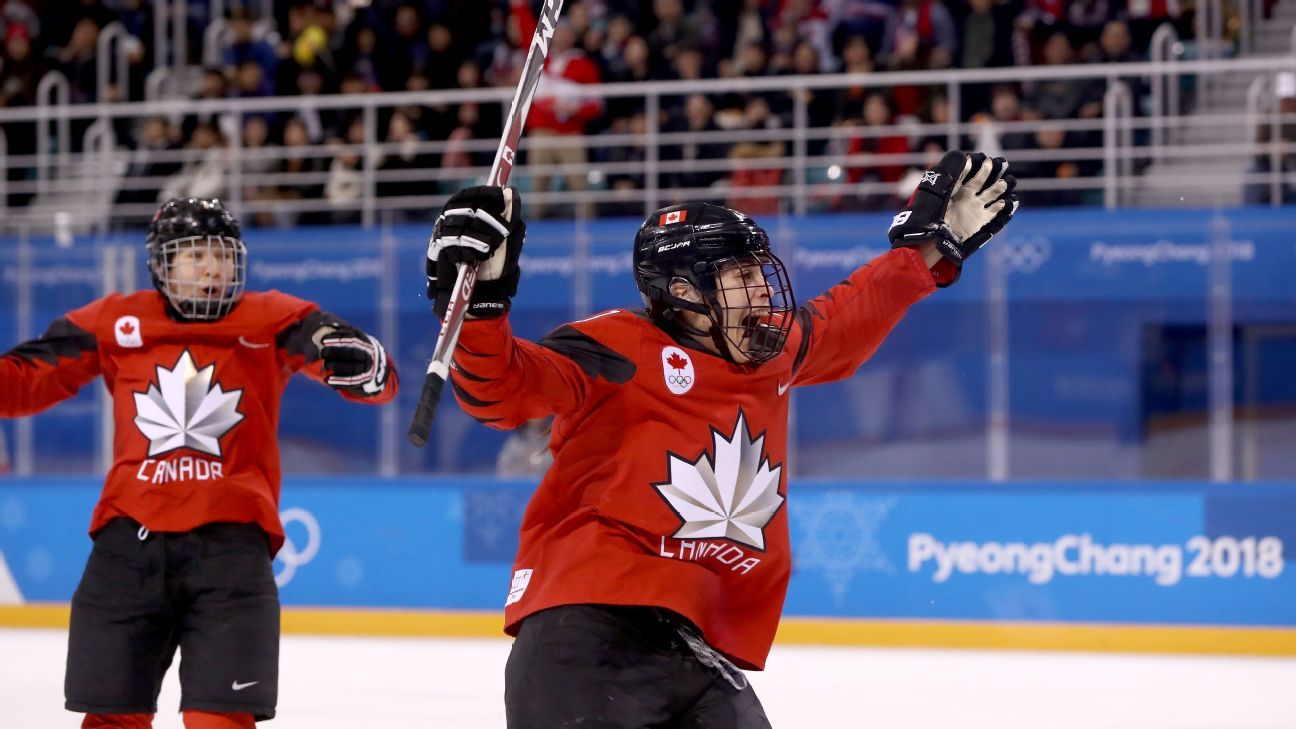Wanting to “set the standard for inclusion” and show support for the Black Lives Matter movement, Liz Knox has resigned from the Professional Women’s Hockey Players Association board so that Sarah Nurse, one of a handful of Black players in the CWHL, can take her place.
Over the past few months, Nurse, a forward for the Canadian national team, became frustrated by silence from the women’s hockey community concerning the Black Lives Matter movement and reached out to the PWHPA, including Knox, about “taking action.”
“Liz is someone I was putting some pressure on,” Nurse said. “… In hockey, we have a bit of a culture of conformity and silence. It’s a predominantly white sport, and for many players, race is an uncomfortable topic. This is something as a players’ association we not only need to be aware of, but take a stance on.”
Over a series of conversations with Nurse, Knox realized the PWHPA needed to do more.
“It’s a blind spot we’ve had in women’s hockey,” Knox said. “Resources are important. Education is important. But I feel like we were missing a piece. If we want to set the standard for inclusion, there’s a logical next step.”
In late August, Knox asked Nurse if she would consider being a member of the nine-player board. After she agreed, Knox chose to resign, but will remain with the PWHPA in an advisory role.
“The PWHPA is committed to anti-racism work and education while advocating for more diverse and inclusive communities through hockey,” the organization said in a statement Wednesday. Citing “heinous acts of violence surrounding police brutality, racial profiling and systematic oppression,” the PWHPA vowed to follow the lead of “our sisters in the WNBA” and take stronger action.
“It was a pretty selfless act of allyship,” Nurse said. ‘There was a lack of diverse representation, and for her to recognize that, is a showcase of allyship. We talk about hiring Black people, hiring indigenous people, but few people recognize that [and] then walk the walk. Liz is a leader by example.”
Said Knox: “We had this goal when we first started out to represent all of our players, national team, non-national team. … We never thought we had a group that wasn’t represented here. Part of that is our own ignorance and our own privilege. I’m glad we didn’t wait too much longer to recognize that.”
Nurse, 25, is a rising star in hockey as a player. Knox said she hopes fans will recognize the work that Nurse has put in off the ice, “to even get to this point.”
“Some may see it as me stepping down,” Knox said. “But Sarah has earned it so much more to even play at the level that she’s at, to continue to advocate with the voice that she had. She’s earned it 10 times more than any of us.”
In the PWHPA’s statement, the organization said it must do better at providing “inclusive and welcoming environments for all people in hockey.”
Nurse, who grew up outside of Toronto, said there have been many times she was singled out at the rink because of her race.
“There were many times I’d walk in with my family, and all eyes were on us and talk going around because, ‘the Black family is coming in,'” Nurse said. “I think my parents did a very good job of sheltering and protecting my brothers. But even the other day, my brother and I walked into an arena and I just felt this strange aura, this strange sense.
“If you walk into a hockey arena, it’s always all white. I always joke, I can always find my parents in the stands because my dad is the only Black man in the entire arena. And that’s something that I want to change. I want the arena to be a multicultural space, and representative of what our society is now. In Canada, we call hockey our national sport. But it can’t be our national sport if it’s excluding a ton of our population.”
Nurse said she has had some initial conversations with the Hockey Diversity Alliance, a new group formed by several NHL players whose stated purpose is to “eradicate racism in hockey, at all levels.”
“I’m very supportive of what the HDA is doing, because ultimately I have the same vision and goals,” Nurse said. “But I have been disappointed that there hasn’t been female representation, not only on the board, but really in any of it.”
Knox, meanwhile, said she hopes Nurse’s appointment is just the first step for the PWHPA.
“One of the things we’re doing right now is trying to figure out how much we want to fit in, and how much we want to stand out,” Knox said. “THe NHL still has a lot of growth to come. If we can be a space they can see as pushing the needle, that would be amazing for us — and amazing for the NHL.
“If the NHL is looking to be a more diverse and inclusive space — if they truly mean that — I hope the PWHPA and women’s hockey can be a good resource for them.”
